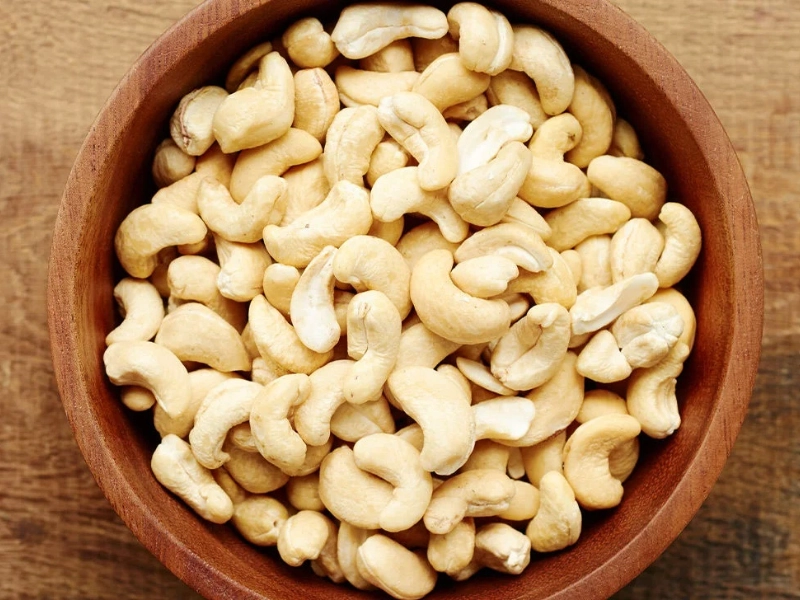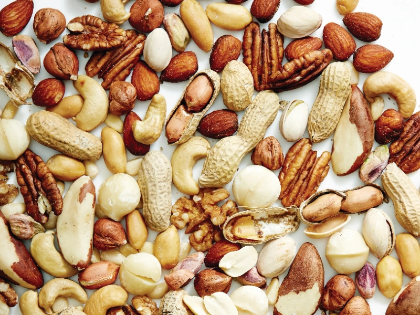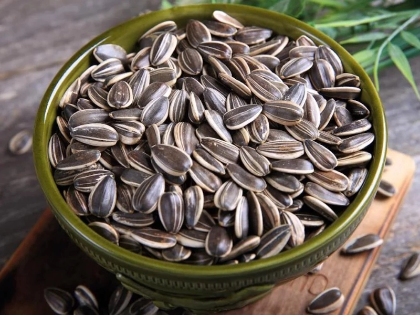How Nuts Can Help in Managing Arthritis Symptoms
1. Understanding Arthritis
 Advertisement
Advertisement
Common in millions of people worldwide, arthritis is a disorder marked by inflammation of the joints that causes pain, stiffness, and limited mobility. Arthritis of several kinds exists; the most common forms are rheumatoid arthritis and osteoarthritis. Managing arthritic symptoms sometimes calls for a mix of medicine, physical therapy, and lifestyle changes—including dietary changes. One dietary strategy that has drawn interest is including nuts into the diet. Apart from their nutritional value, nuts could also provide particular advantages for people with arthritis.
2. Nutritional Benefits of Nuts

Nutrient-dense foods loaded in vitamins, minerals, good fats, and antioxidants are nuts. Among other micronutrients such vitamin E and magnesium, they are a great source of omega-3 fatty acids, fibre, protein, and different minerals. These elements help to explain their anti-inflammatory effects, which would be especially helpful for those controlling arthritic symptoms. Including nuts into a balanced diet helps to promote general well-being by offering a variety of health advantages beyond only joint health.
3. Anti-Inflammatory Properties

The fact that nuts help to lower inflammation is among their most important benefits. Arthritis progresses mostly through chronic inflammation, which causes joint degeneration and more pain. High omega-3 fatty acids and polyunsaturated fats found in nuts—especially walnuts and almonds—have been demonstrated to lower body inflammatory indicators. Regular nut intake could help reduce the inflammatory reaction, thereby possibly relieving some arthritic symptoms.
4. Specific Nuts and Their Benefits

There are special health advantages to some kinds of nuts. For omega-3 fatty acids, for instance, walnuts are especially high and can help lower joint inflammation and pain. Rich in vitamin E, an antioxidant that shields cells from oxidative stress—often raised in arthritis sufferers—almonds One great source of selenium, a mineral that can help lower inflammation and boost immune system, are Brazil nuts. Including a range of nuts in the diet will help one maximise their different health advantages.
5. Nuts and Weight Management
Managing arthritic symptoms depends on keeping a sensible weight. Extra weight strains the joints more, aggravating pain and restricting movement. Since they are satisfying and can help regulate appetite, nuts can be a great addition to a weight-loss program. Their high protein and good fats help to create sensations of fullness, therefore lowering the possibility of overindulgence. Moderately ingested nuts can help with weight loss or maintenance, so improving joint condition.
6. Heart Health and Arthritis
People with arthritis run more chance of having cardiovascular disease. Given their favourable fat content, nuts can help to promote heart health. Monounsaturated and polyunsaturated fats abound in them and can help reduce bad cholesterol and enhance general heart function. Better circulation—which is necessary for delivering nutrients to joints and lowering inflammation—is supported by a healthy heart. Including nuts into a heart-healthy diet helps those with arthritis concurrently address several health issues.
7. Easy Ways to Include Nuts in Your Diet
Including nuts in your every day schedule is easy and flexible. They might be eaten on their own as a snack or mixed with other foods. Think of adding chopped nuts on salads, mixing them into smoothies, or sloshing nut butter over whole-grain toast. For more texture and taste, nuts can also be used into muesli, yoghurt, or baked products. Changing the kinds of nuts you use will keep meals interesting and supply vital nutrients.
8. Potential Allergies and Considerations
Though nuts provide many health advantages, one should be careful about any allergies. Common and in some cases causing serious reactions are nut allergies. For people without allergies, moderation is essential as nuts are foods heavy in calories. One should eat them in reasonable amounts to prevent too high calorie consumption. See a certified dietitian or a healthcare practitioner to help create a nut-inclusive diet fit for your particular health requirements.
9. The Role of a Balanced Diet
Though they help greatly control arthritic symptoms, nuts should be a part of a balanced diet. Included to provide complete nutrition should be a range of fruits, vegetables, entire grains, and lean proteins. This strategy helps general wellbeing as well as joint health. A balanced diet can improve the efficacy of various arthritis control techniques including physical exercise and medicines.
10. Summary of Nuts as a Tool for Arthritis Management
All things considered, nuts can be a great addition to any diet for someone controlling arthritic symptoms. Their nutritional value, anti-inflammatory qualities, and part in weight control help make them a good food. A balanced diet with a range of nuts will help people support their general well-being and joint condition. Nuts' great taste and adaptability make them a fun approach to help properly control arthritis symptoms.









